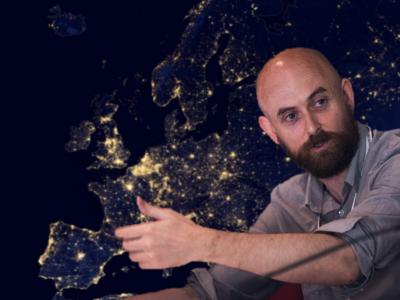ADI interviews the President of Eurodoc Gareth O’Neill.
Last December, ADI approved the new Statute and now it has been submitted to Eurodoc for membership reapplication. One of the main updates on our Statute is the antifascist position that is an answer to the waves of intolerance that are crossing not only Italy but also other countries in Europe. How is Academia reacting to these politics in Europe?
Academics do not seem to be expressing strong opinions collectively on the developing polarisation and extremism we are seeing across Europe. We are, however, seeing responses to governments clamping down on academic freedom and interfering negatively in academic policies. Such governmental overreach is especially true for academics who are critical of their governments and for policies that do not align with the political ideologies of the government. Eurodoc supports academic freedom and condemns extremist behaviour.
In December, we also decided to change our name from “Association of Italian doctoral candidates and PhDs” to “Association of Doctoral Candidates and PhDs in Italy”. This decision arose from the necessity to represent all Doctoral candidates and PhDs working in Italy (but not necessarily Italian) and to underline our strong connections with the other National Associations that are also members of Eurodoc, which represents also Italians researchers working outside of Italy. Could you clarify how Eurodoc members are building policies in each European country and in Europe overall?
The policies of our national associations in Eurodoc are determined democratically by their own doctoral candidate and/or postdoctoral members. This is often done through surveys, association meetings, topical working groups, and open consultations for input. The associations then engage with their national stakeholders (such as their ministries, science funders, and university associations). Our national associations in Eurodoc share these policies with each other and democratically decide the key issues and policies for Eurodoc. We then engage with our stakeholders at the European level (including the European Commission, Science Europe, and European University Association). By working together, our national associations strengthen the voice of early-career researchers across Europe.
Italy is the top country in Europe for geographical mobility of PhDs and this is a big issue for ADI as well. This is why we understand the need for international networks of associations representing PhD candidates and holders, not only in Europe. Is Eurodoc building collaborations outside of Europe?
Mobility of researchers is a key issue for Eurodoc. We are concerned not only with geographic mobility (moving between countries) but also with intersectoral mobility (moving between sectors) and interdisciplinary mobility (moving between disciplines). It is important that early-career researchers are given the best skills and experiences so that they are able to develop their careers either in or outside academia and across countries. Our members come exclusively from Europe but we also work with stakeholders from outside of Europe. This includes organisations representing researchers (such as the Global Young Academy), representing universities (such as the International Association of Universities), and representing international countries (such as the United Nations). While we are focused on Europe, we realise that we are connected to the rest of the world, and have a role to play.
There are several concerns related to the working conditions of PhD candidates and PhD holders that are common in Italy as well as inside and outside Europe. In particular, mental health issues related to working conditions in Academia, as well as Open Access. In this regard, ADI is supporting Eurodoc statements and Implementation on Plan S, published on 2018 and 2019. Can you tell us a bit more about Eurodoc’s policy on these topics?
These are indeed currently our main concerns for early-career researchers. We stress that most researchers must leave academia but are not being skilled or supported to find non-academic careers. We fully support Open Science (which aims to open up research methods, data, and publications) but note that institutions are not training or rewarding their researchers to do Open Science. And we are deeply worried by the taboo around mental health issues in academia and the increasing surveys showing an overly high percentage of early-career researchers are stressed, anxious, and even clinically depressed. We are now developing policies on these topics to help improve the life of early-career researchers in Europe. We are always looking for interested volunteers to engage on our working groups and help us develop our policies. Are you interested? Then contact ADI and get involved now!
